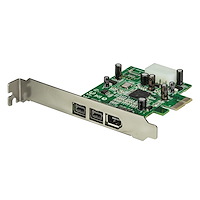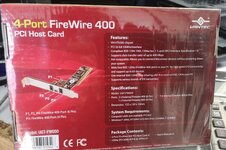I do understand the fascination with reviving old gear. I recently put my mothballed HD24 back into action, because I need it for a certain thing.
Computer hardware however - It just doesn't stand the test of time. Too many things change, very fast. And being dependent on operating systems, and whatever hardware is still available to fix it, makes it a questionable choice. If you are good with computers and associated hardware, it would not be difficult to bring it back to life. The question is, is it really worth it?
Is this a matter of economy, i.e. you cannot afford to replace it, or is it more of a 'I would like to get it working again', just for the heck of it?
I have kept XP machines running for very specialized circumstances (not audio, and not mine), but would not even consider using one now, for the purposes of multi-track audio. Times change.
How many inputs and outputs do you need, and what is your end goal?
oh yeah, running a DAW is challenging enough, running it as VM is asking for trouble, and totally backwards from an optimization perspective.


